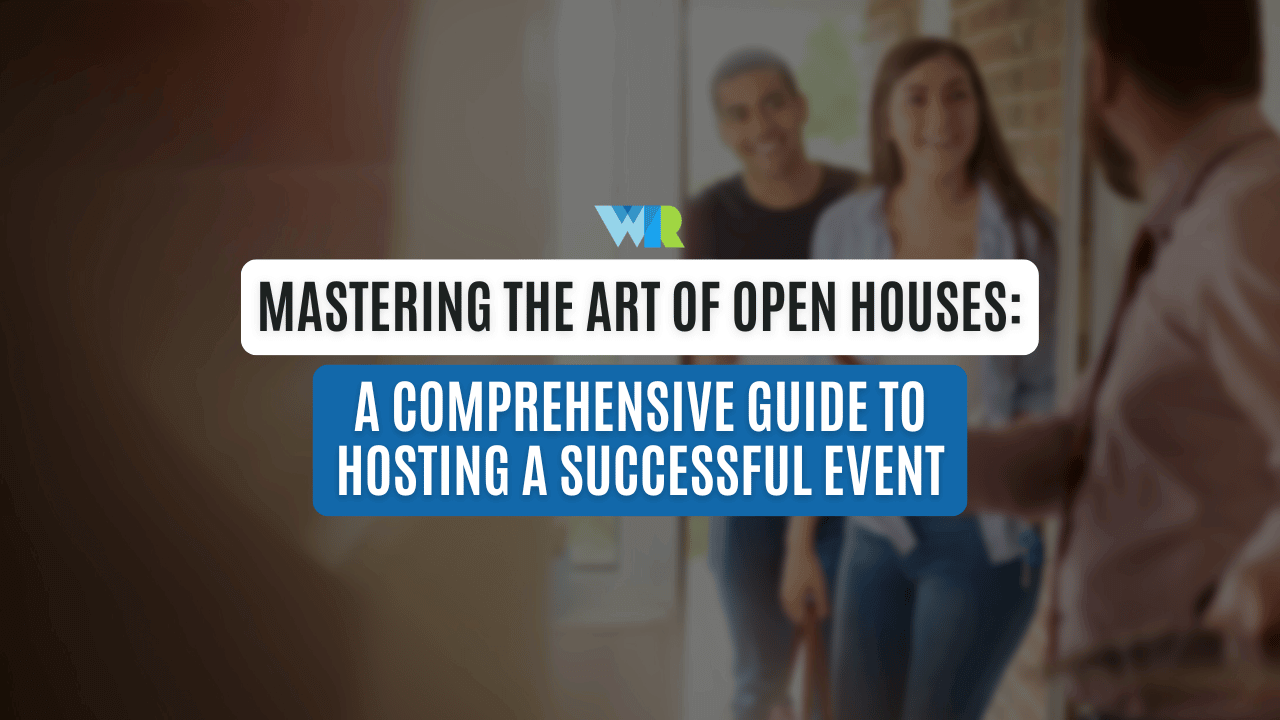Downsizing Your Home: Tips for Making the Transition Easier

Making the decision to downsize your home can be both exciting and daunting. Whether you're an empty nester looking for a smaller space or simply want to simplify your life, downsizing can offer many benefits. In this article, we'll explore the advantages of downsizing, how to prepare for the process, tips for decluttering and organizing your belongings, and finding the right home for your needs.
The Benefits of Downsizing Your Home
Are you considering downsizing your home? If so, you're not alone. Many people are choosing to move to smaller spaces for a variety of reasons. In this article, we'll explore some of the benefits of downsizing your home.
Financial Advantages
One of the most significant advantages of downsizing your home is the financial benefits it can offer. By moving to a smaller space, you can save money on mortgage payments, property taxes, utility bills, and home maintenance costs. This extra cash can be used to pay off debt, travel, or invest in your future.
Additionally, downsizing can help you avoid the financial strain that can come with a large home. For example, if you're retired, downsizing can help you stretch your retirement savings further.
Environmental Impact
Downsizing can also have a positive impact on the environment. By living in a smaller home, you can reduce your energy consumption and carbon footprint. You'll also consume less water, produce less waste, and create a more sustainable lifestyle.
Furthermore, living in a smaller home can encourage you to adopt eco-friendly habits. For example, you may start composting or using reusable grocery bags to reduce your impact on the environment.
Simplifying Your Lifestyle
Living in a smaller home can also simplify your life. You'll have fewer possessions to manage, and fewer rooms to clean and maintain. This can free up time and energy for other pursuits, such as spending time with family and friends, pursuing hobbies, or volunteering.
Moreover, downsizing can help you prioritize what's important in your life. By getting rid of unnecessary possessions, you'll have more space to focus on the things that matter most to you.
Improved Health and Well-being
Did you know that downsizing your home can also improve your health and well-being? It's true! Living in a smaller space can help reduce stress and anxiety. You'll have less to worry about and fewer distractions, which can help you feel more relaxed and focused.
Furthermore, downsizing can encourage you to adopt a more active lifestyle. For example, you may choose to walk or bike instead of driving, or you may take up a new hobby that requires physical activity.
New Opportunities
Finally, downsizing your home can open up new opportunities for you. For example, you may be able to move to a new city or neighborhood that better suits your lifestyle. You may also be able to travel more frequently or pursue a new career or hobby.
Overall, downsizing your home can offer a variety of benefits. Whether you're looking to save money, reduce your environmental impact, simplify your life, improve your health and well-being, or explore new opportunities, downsizing may be the right choice for you.
Preparing for the Downsizing Process
Downsizing your home can be a daunting task, but with the right preparation, it can be a smooth and stress-free process. In this article, we'll explore some essential steps you can take to prepare for the downsizing process.
Assessing Your Needs and Priorities
The first step in downsizing your home is to assess your needs and priorities. Consider your current living situation and what you need in a new space. Do you need a home office, guest room, or outdoor space? What amenities are essential for your lifestyle? Taking the time to assess your needs and priorities can help you find the right home and avoid making impulsive decisions.
For example, if you're an avid gardener, you may want to look for a home with a yard or a balcony where you can continue your hobby. On the other hand, if you're looking to simplify your life, you may want to consider a smaller home with less maintenance.
Creating a Timeline and Budget
Once you've assessed your needs and priorities, it's essential to create a realistic timeline and budget. Downsizing your home can be a lengthy process, so it's crucial to have a plan in place. Consider factors such as when you want to move, how long it will take to sell your current home, and how much money you have to spend on a new home. Having a budget and timeline can help you stay on track and avoid overspending.
It's also important to factor in any additional costs associated with downsizing, such as moving expenses, storage fees, and home repairs. By creating a comprehensive budget, you can ensure that you're financially prepared for the downsizing process.
Involving Family Members and Friends
Downsizing can be an emotional process, so it's essential to involve family members and friends in the decision-making process. Talk to your loved ones about your plans and how they can support you. They may be able to help you with packing, donate unwanted items, or provide emotional support during this transition.
Additionally, involving your loved ones in the downsizing process can help you make informed decisions about what to keep, donate, or sell. They may have valuable insights into what items hold sentimental value or are essential for your lifestyle.
Exploring Your Options
Once you've assessed your needs, created a budget, and involved your loved ones, it's time to start exploring your options. Consider working with a real estate agent who specializes in downsizing to help you find the right home. They can help you navigate the market and find a home that meets your needs and budget.
You may also want to consider alternative housing options, such as tiny homes, co-housing communities, or retirement communities. These options can provide a sense of community and simplify your life.
Conclusion
Downsizing your home can be a challenging process, but with the right preparation, it can be a positive and transformative experience. By assessing your needs and priorities, creating a budget and timeline, involving your loved ones, and exploring your options, you can find the right home and simplify your life.
Decluttering and Organizing Your Belongings
Decluttering and organizing your belongings can be a daunting task, but it's essential for a stress-free and organized living space. Downsizing to a smaller home can be a challenging transition, but it can also be an opportunity to simplify your life and focus on the things that matter most to you. Here are some tips to help you declutter and organize your belongings efficiently:
Sorting and Categorizing Items
The first step in decluttering is sorting and categorizing your belongings. Start by creating piles of items to keep, sell, or donate. It's essential to be honest with yourself about what you need and what you can let go of. Consider your new space and think about what items you'll need in your smaller home. Try to let go of items that no longer serve a purpose or bring you joy.
When sorting your belongings, it can be helpful to create subcategories, such as clothes, books, or kitchenware. This will make the process more manageable and help you stay organized.
Deciding What to Keep, Sell, or Donate
Once you've sorted your items, it's time to decide what to keep, sell, or donate. Consider selling valuable items that you no longer need, such as furniture, art, or antiques. You can use this extra cash to fund your downsizing process. Donating items to charity can also be a fulfilling way to give back to your community.
When deciding what to keep, it's important to prioritize the items that are essential to your daily life. These may include practical items such as kitchenware, bedding, and clothing. It's also important to keep sentimental items that hold special meaning for you, such as family heirlooms or photographs.
Efficient Storage Solutions for Smaller Spaces
In a smaller home, it's essential to maximize your storage space. Investing in efficient storage solutions can help you keep your belongings organized and make the most of your living space. Consider built-in cabinets, shelving, or under-bed storage to help you save space. You can also use multi-functional furniture, such as a storage ottoman or a bed with built-in drawers, to save space and keep your belongings organized.
Another way to maximize storage space is to use vertical storage solutions. For example, you can hang shelves or hooks on your walls to store items such as hats, bags, or coats. You can also use over-the-door organizers to store shoes or accessories.
Decluttering and organizing your belongings can be a challenging process, but it's worth the effort. By simplifying your life and focusing on the things that matter most to you, you can create a stress-free and organized living space that you'll love coming home to.
Finding the Right Home for Your Needs
Downsizing your home can be a daunting task, but it can also be an exciting opportunity to find a new home that better suits your current lifestyle. Whether you're an empty nester looking to simplify your life, or just looking to reduce your living expenses, there are many factors to consider when finding the right home for your needs.
Researching Neighborhoods and Amenities
One of the most important factors to consider when downsizing is the neighborhood and surrounding amenities. Take the time to research different neighborhoods and their unique features, such as location, walkability, and nearby amenities such as grocery stores, libraries, and parks. You may also want to consider the community's social events and activities, such as clubs or volunteer opportunities.
When researching neighborhoods, it's important to think about your specific needs and preferences. For example, if you enjoy spending time outdoors, you may want to look for a neighborhood with easy access to parks or hiking trails. If you prefer a quiet, suburban lifestyle, you may want to look for a neighborhood with low traffic and plenty of green space.
Comparing Different Types of Homes
Once you've narrowed down your preferred neighborhoods, it's time to start considering the different types of homes available. There are many options to choose from when downsizing, such as condominiums, townhouses, or tiny homes. Each type of home has its own advantages and disadvantages, so it's crucial to weigh your options carefully.
Condominiums and townhouses are popular options for downsizing because they offer low-maintenance living and often come with amenities such as swimming pools or fitness centers. However, they may also come with higher fees and restrictions on customization.
Tiny homes are another option for downsizing, and have become increasingly popular in recent years due to their affordability and minimalistic lifestyle. However, they may not be suitable for everyone, as they often have limited space and require a significant adjustment in lifestyle.
Working with a Real Estate Agent
Finally, consider working with a real estate agent who has experience in downsizing. They can help you navigate the home-buying process, negotiate on your behalf, and provide valuable advice and resources. A knowledgeable agent can also help you find the right home and community to meet your needs.
When choosing a real estate agent, it's important to find someone who understands your specific needs and preferences. Look for an agent who has experience working with downsizing clients and who can provide references from satisfied customers. A good agent will be able to guide you through the process of finding the perfect home for your needs, and will be there to support you every step of the way.
Overall, downsizing your home can be a rewarding experience that allows you to simplify your life and focus on the things that matter most to you. By taking the time to research neighborhoods, compare different types of homes, and work with a knowledgeable real estate agent, you can find the perfect home to meet your needs and start enjoying the next chapter of your life.
Conclusion
Downsizing your home can be a rewarding process that offers many benefits. By taking the time to assess your needs and priorities, create a timeline and budget, and declutter and organize your belongings, you can make the transition easier. Finding the right home for your needs and working with a real estate agent can also make the process smoother. With these tips, you can enjoy the benefits of downsizing and create a simpler, more sustainable lifestyle.

